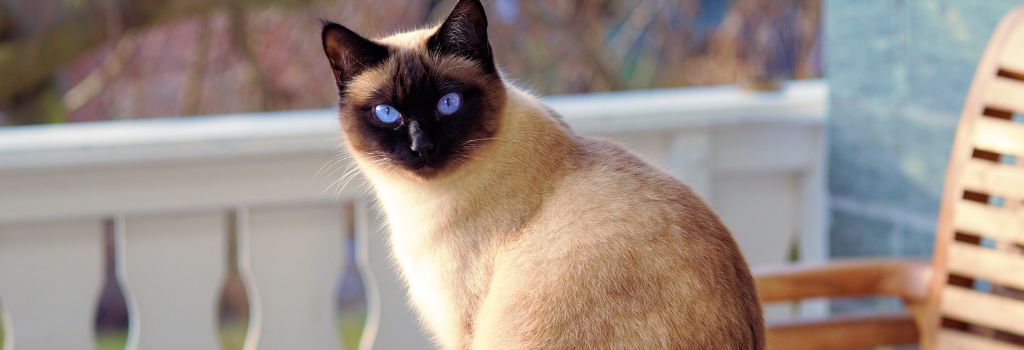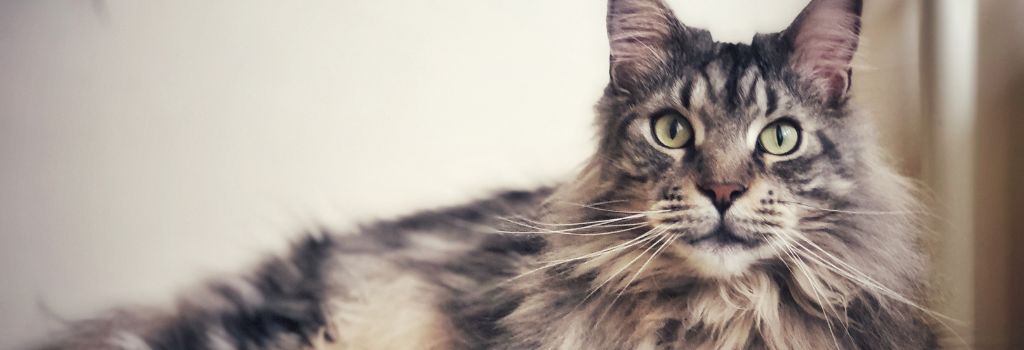Bringing a cat into your home is an exciting experience, especially if it's your first time becoming a pet parent! Cats can make terrific companions, but some breeds are more suited to beginners than others due to their temperament, care needs, and health considerations.
If you’re a first-time cat owner, choosing a breed that’s friendly, low-maintenance, and adaptable to various living environments can make your transition smoother. Here are four of the best cat breeds for first-time cat owners, with all the essential details to help you make an informed choice!
1. Ragdoll
Known for their strong attachment to humans, Ragdolls thrive on interaction and are less independent than many other breeds, making them perfect for those looking for a cat that enjoys cuddling and being close. In fact, their name stems from their unique tendency to go limp and relax, just like a ragdoll, when picked up—earning them a reputation as the ultimate snuggle buddies! With their gentle nature and desire for affection, Ragdolls are sure to win your heart.
Basic Ragdoll Facts
- Adult Weight: 10-20 pounds
- Coat: Semi-longhair, soft, and plush
- Color Patterns: Seal, blue, chocolate, lilac, cream, and more
- Lifespan: 12-15 years
Best Environment for Ragdolls
Ragdolls blossom in calm households where they can get plenty of attention. Due to their docile nature and love of play, they're excellent for families with children.
Potential Behavioral and Health Issues for Ragdolls
- Hypertrophic Cardiomyopathy (HCM): Ragdolls are generally healthy cats, but they are prone to a heart condition known as hypertrophic cardiomyopathy (HCM). This disease causes the walls of the heart to thicken, which can lead to heart failure over time. Regular veterinary check-ups are crucial to monitor their heart health and catch any issues early on.
- Separation Anxiety: Ragdolls are highly affectionate and can become overly attached to their human counterparts. They don’t enjoy being left alone for extended periods, which can lead to feelings of loneliness or anxiety. If you work long hours or are frequently away from home, you might consider getting a second pet to provide them with companionship and reduce the risk of separation-related behaviors.
2. Siamese
Siamese cats are an excellent choice for first-time owners, thanks to their remarkable intelligence and highly social nature. Known for their affectionate personalities, Siamese cats thrive on human interaction and love being the center of attention. Their outgoing and playful demeanor makes them easy to bond with, often forming deep, loyal connections with their owners. As one of the oldest and most recognizable cat breeds, Siamese cats are also famous for their "talkative" nature. They aren’t shy about using their vocal skills to communicate their needs, whether it’s asking for attention, food, or simply wanting to be part of the conversation. With their loving, interactive personalities, Siamese cats are sure to bring life to any home.

Basic Siamese Facts:
- Adult Weight: 6-14 pounds
- Coat: Short and sleek
- Color Patterns: Seal point, blue point, chocolate point, lilac point
- Lifespan: 15-20 years
Best Environment for Siamese
Siamese cats love to be in the center of the action and do well in active households. They enjoy attention and will flourish living in homes where someone is around most of the time.
Potential Behavioral and Health Issues for Siamese
- Dental Issues: Siamese cats are prone to dental problems, which can lead to discomfort and other health complications if not properly managed. Regular veterinary check-ups are essential to maintain their oral health and prevent issues like gum disease and tooth decay.
- Respiratory Problems: Some Siamese cats may experience respiratory issues, especially due to their narrow nasal passages. Keep an eye on their breathing, and if you notice any signs of difficulty, it’s important to consult your veterinarian so they receive appropriate care.
- Destructive Behavior Due to Boredom: Siamese cats are highly intelligent and social, which means they need plenty of mental stimulation and attention. If left alone for too long or without enough interactive play, they may become bored and resort to destructive behaviors, such as scratching furniture or knocking things over. Providing toys, puzzles, and regular playtime can help keep them happy and engaged.
3. Maine Coon
Maine Coons are often affectionately called "gentle giants" due to their impressive size and equally remarkable temperament. Despite their large stature—some can grow up to 40 inches (that’s over 3 feet!) in length from nose to tail—these cats are known for their friendly, laid-back personalities. Their gentle and patient nature makes them a great choice for households with children or other pets, as they tend to get along well with everyone. Maine Coons may be big in size, but they are also big in heart, making them a wonderful and loving addition to any family. Whether lounging around or engaging in playful interactions, their calm and easygoing demeanor ensures they fit in perfectly in a variety of living environments.
Basic Maine Coon Facts:
- Adult Weight: 10-25 pounds
- Coat: Long and thick with a waterproof undercoat
- Color Patterns: Variety of colors and patterns, including tabby, solid, tortoiseshell, and more
- Lifespan: 10-13 years
Best Environment for Maine Coons
Maine Coons are highly adaptable and can be content in both small apartments and larger homes. They enjoy interactive play and are often described as dog-like in their loyalty and affection.

Potential Behavioral and Health Issues for Maine Coons
- Hip Dysplasia: Due to their large size, Maine Coons can be prone to hip dysplasia, a condition where the hip joint doesn’t develop properly. This can lead to discomfort or mobility issues as they age. Maintaining a healthy weight and regular vet check-ups can help manage or prevent the progression of this condition.
- Hypertrophic Cardiomyopathy (HCM): Like Ragdolls, Maine Coons are also at risk for hypertrophic cardiomyopathy (HCM), a heart condition that causes the walls of the heart to thicken. Routine heart screenings during annual exams are important to monitor their heart health and catch any potential issues early on.
- Independence and Need for Stimulation: While Maine Coons are friendly and social, they can be a bit more independent than some other breeds. They may not demand constant attention, but they do enjoy interactive play. Without proper stimulation, they may become bored. Providing toys, climbing structures, and regular playtime will help keep them mentally and physically active.
4. Scottish Fold
The Scottish Fold is a unique and endearing breed that is great for first-time owners seeking a calm and gentle cat. Scottish Folds are known for their easygoing, friendly nature, are relatively low-maintenance, and tend to form deep bonds with their human companions, often becoming quite attached to their families. The breed’s most distinctive feature is its folded ears, which give Scottish Folds an adorable, owl-like appearance. However, not all Scottish Folds have these signature folded ears—some are born with straight ears, but regardless of their ear type, both varieties share the same sweet, affectionate temperament. With their charming looks and gentle personalities, Scottish Folds are sure to bring laughter and love to any family.
Basic Scottish Fold Facts:
- Adult Weight: 6-13 pounds
- Coat: Can be either short or long-haired
- Color Patterns: Wide variety of colors and patterns
- Lifespan: 12-15 years
Best Environment for Scottish Folds
Scottish Folds are suited to quieter households. They enjoy lounging around and can adapt well to both apartment living and larger homes. They do well with families and can also be good with other pets.
Potential Behavioral and Health Issues for Scottish Folds
- Joint and Cartilage Issues: The distinctive folded ears of Scottish Folds are caused by a genetic mutation, which can also affect the cartilage in their joints. This condition, called osteochondrodysplasia, can lead to stiffness, pain, or mobility problems, especially as they age. Regular monitoring of their joint health and ensuring their comfort is important to manage these potential issues.
- Shyness and Need for Socialization: While Scottish Folds are generally calm and sweet-natured, they can sometimes be a bit shy or reserved. Early socialization and consistent attention will help them feel more comfortable and outgoing in their environment. Allowing them to get plenty of interaction from a young age can prevent them from becoming too timid.
The Purrfect Companion
Congratulations if you’ve already found yourself a new kitty companion! If you’re still searching for your first pet, remember that choosing a breed that suits your lifestyle is important to creating a happy and healthy home for both you and your new cat.
While there are many breeds to choose from, it’s always a good idea to talk to your veterinarian about which breed might be the best fit for your living situation, family, and preferences. We think these four breeds are a fantastic place to start, offering a variety of traits that make them perfect for first-time cat owners. Best of luck in finding your perfect feline friend!
If you have questions and you'd like to reach out to us, you can call us directly at (859) 689-4700, or you can email us at [email protected]. Don't forget to follow us on social media Facebook, Instagram.

